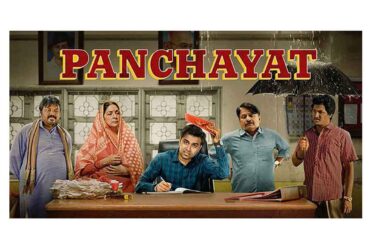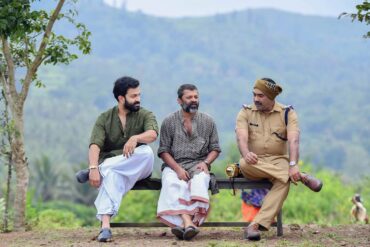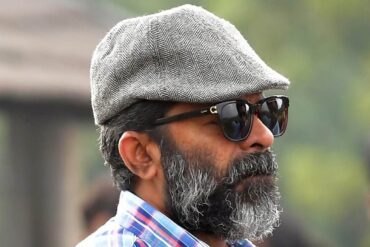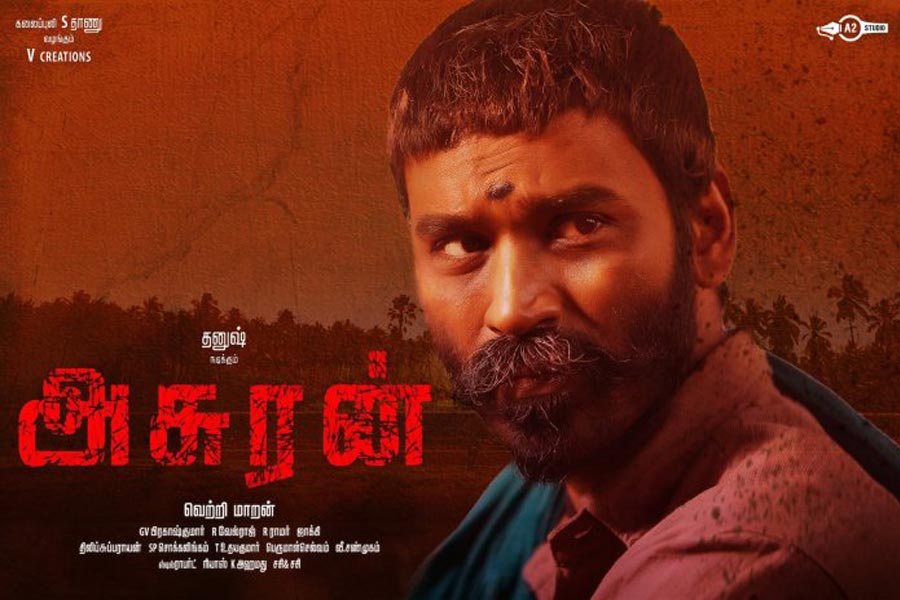Amidst all the conflicts in this world, the disparity between the haves and the have-nots remain the most fundamental of all. With the society becoming increasingly money-centric, there is no denying the influence that the wealthy have, especially in the rural areas where law and order is often reduced to a farce. In such circumstances, violence is an inevitable byproduct. Vetrimaaran uses this premise as one the themes of his latest film Asuran, starring Dhanush and Manju Warrier in the lead roles.
Sivasaamy (Dhanush) and his wife Pachaiyamma (Manju Warrier) have three children. The eldest son is in his 20s while his younger brother is into his teens. The youngest, a girl child, is little. The lower caste family earns their livelihood from a portion of the forest that has been inherited from their ancestors. However, the other part of the forest belongs to an upper-caste landlord Narasimha (Naren), who runs the show in the region on the strength of his wealth. Needless to say, tensions are rife.
Due to the non-linear narrative, the film opens with the murder of Narasimha by Sivasaamy’s younger son, forcing the already wounded family to be on the run. Narasimha’s vengeance-seeking family is in no mood to relent as they comb the nook and corner of the region. Amidst all the mess, Sivasaamy doesn’t get triggered into violence and instead, focuses on saving his family, even if it means swallowing his ego. Why was Narasimha murdered? What is Sivasaamy’s past? All this and more is what Asuran is about.
There is something about the Dhanush-Vetrimaaran combination. Indian cinema has seen many actor-director combinations that have ruled the roost at the box office. But it’s tough to remember any other pair getting critical acclaim for their films like these two. When the two joined hands for the first time in 2007 for Polladhavan, not many would have predicted the success they would achieve in the years to come.
If Vada Chennai last year was brutally honest in its intentions, Asuran goes a notch higher in terms of execution. Based on a famous novel Vekkai, Vetrimaaran and his brother Manimaaran have co-written the film’s screenplay with a large chunk of dialogues adapted from the book. The film is rapidly paced and Vetrimaaran is in supreme command of his craft, giving us a mind-boggling experience.
But Asuran is what it is due to Dhanush’s stellar act. He has two get-ups in the film—one as a middle aged person and the other as a young man. He pulls off both variations of his character with incredible ease. The body language, mannerisms and dialogue delivery are poles apart, showing us the different stages of a man’s journey in life. He also aces the action scenes. However, it’s in the intense sequences that Dhanush really stands out. Manju Warrier is the other protagonist in the film and she comes up with a fiery performance, the kind Mollywood viewers are used to.
Apart from the performances of the cast and Vetrimaaran, it’s GV Prakash’s music and background scores that roar through the film, literally. While he has had a decent time as an actor of late, music is what GV Prakash is made for.
Through certain subtle dialogues, sequences and characters, Asuran clearly brings out the caste divide and the financial disparities among the people. The violence might be excessive but doesn’t look far-fetched, given the backdrop. Where the film succeeds most is in the mood that it creates. There’s anxiety in the air and that forces the audience to be glued to the screens. Velraj’s cinematography and Ramar’s editing are top-notch.
The censoring (U/A) has forced quite a few cuts in the film and that’s a dampener. Perhaps, Vetrimaaran could have opted for an A certificate to exhibit the film in all its glory. Nevertheless, Asuran is another worthy addition to the bunch of films that Dhanush and Vetrimaaran have come up with. Many awards, including the National Award for Best Actor, might be on the cards.







